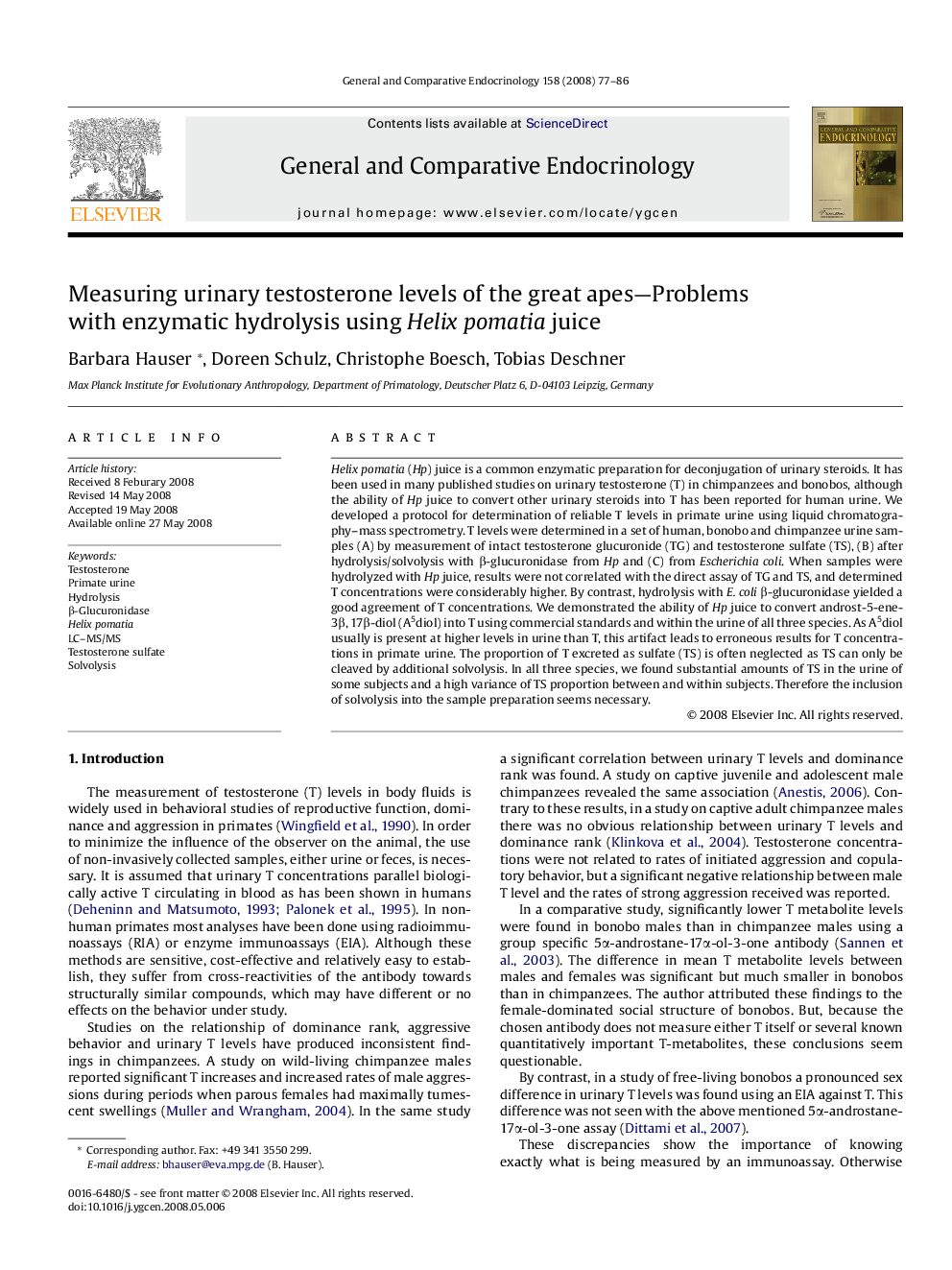| Article ID | Journal | Published Year | Pages | File Type |
|---|---|---|---|---|
| 2801600 | General and Comparative Endocrinology | 2008 | 10 Pages |
Helix pomatia (Hp) juice is a common enzymatic preparation for deconjugation of urinary steroids. It has been used in many published studies on urinary testosterone (T) in chimpanzees and bonobos, although the ability of Hp juice to convert other urinary steroids into T has been reported for human urine. We developed a protocol for determination of reliable T levels in primate urine using liquid chromatography–mass spectrometry. T levels were determined in a set of human, bonobo and chimpanzee urine samples (A) by measurement of intact testosterone glucuronide (TG) and testosterone sulfate (TS), (B) after hydrolysis/solvolysis with β-glucuronidase from Hp and (C) from Escherichia coli. When samples were hydrolyzed with Hp juice, results were not correlated with the direct assay of TG and TS, and determined T concentrations were considerably higher. By contrast, hydrolysis with E. coli β-glucuronidase yielded a good agreement of T concentrations. We demonstrated the ability of Hp juice to convert androst-5-ene-3β, 17β-diol (A5diol) into T using commercial standards and within the urine of all three species. As A5diol usually is present at higher levels in urine than T, this artifact leads to erroneous results for T concentrations in primate urine.The proportion of T excreted as sulfate (TS) is often neglected as TS can only be cleaved by additional solvolysis. In all three species, we found substantial amounts of TS in the urine of some subjects and a high variance of TS proportion between and within subjects. Therefore the inclusion of solvolysis into the sample preparation seems necessary.
